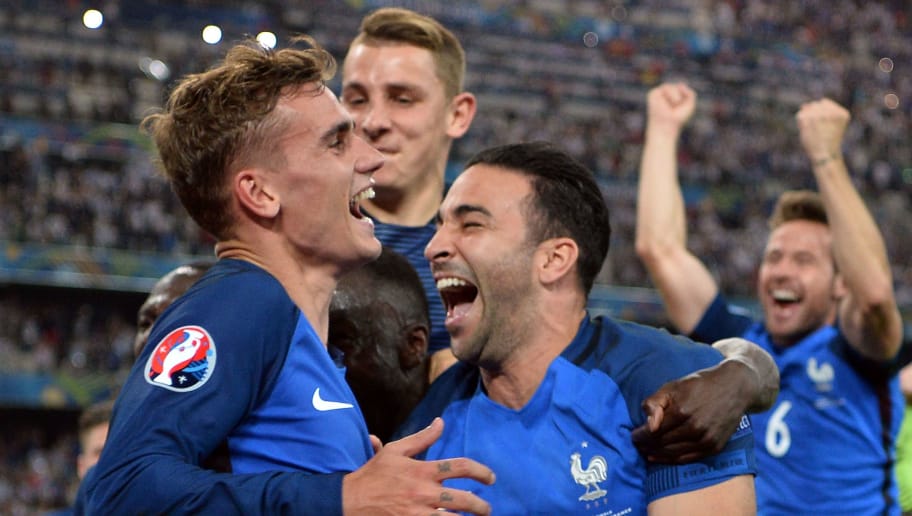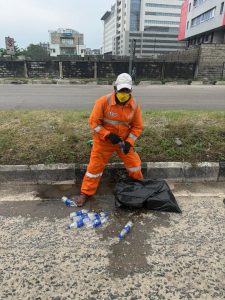
Football fever has gripped the French capital and sales of the national team’s soccer shirts are surging ahead of France’s World Cup final against Croatia on Sunday.
The authorities will deploy 110,000 police and security forces across the country this weekend to secure the huge street parties if “Les Bleus” win the World Cup on Sunday, after years of attacks by terrorists targeting crowds and other so-called “soft” targets.
In Paris, fans thronged stores on the Avenue des Champs-Elysees and the capital’s Republique area to buy replica shirts bearing the names of the team’s stars, such as teenage sensation Kylian Mbappe and N’Golo Kante.
“We’ve had loads of orders for shirts and we’ve practically sold them all already,” said a manager at the NSH Football store in Paris.
“There have been a lot of orders for Mbappe and Kante shirts.”
Others found novel ways to mark the World Cup. Parisian baker Didier Lavry who runs the Petit Mitron boulangerie made a special “Tricolore” cake before France’s showdown.
The dark-blue shirts of “Les Bleus” could be seen in the city’s bars and cafes as Paris prepared for a bumper weekend with the July 14 Bastille Day holiday followed by the final, in which France is viewed as the favourite.
The massive security effort, countrywide, has been complicated by France’s national day, Bastille Day, which falls on Saturday.
Few French can think of the traditional national holiday parties and firework displays without recalling the 86 people mown down two years ago by a van in the Mediterranean coastal resort of Nice.
The country has been repeatedly targeted by extremists over previous years in attacks that have claimed 246 lives since January 2015, according to an AFP toll.
“Everything is being done so the French can live these festive moments with peace of mind, despite the terrorist threat which remains at a high level,” Interior Minister Gerard Collomb said Friday.
In Paris and nearby suburbs alone a vast security effort involving 12,000 police is being prepared for the weekend, with an additional 3,000 emergency medical responders on hand.
“The goal is to guarantee that these events go off smoothly… that the party not be spoiled by such tragedies,” Paris police chief Michel Delpuech said Thursday.
He said police forces had not faced such a confluence of “exceptional events” in the capital since July 12, 1998, when up to 1.5 million euphoric fans converged on the Champs Elysees after France won its first World Cup title.
The following day saw an ecstatic parade for the victorious French team, fuelling a burst of national pride that carried over into the traditional July 14 military parade along “the most beautiful avenue in the world”.




Hello!
Take advantage of our exclusive promotions designed to boost your gameplay. Sign up today and unlock rewards that enhance your winning potential! http://itsjackpottime.com
I love how your posts always leave me motivated and inspired.
贴纸和 GIF 是 Telegram中文版下载 聊天中的乐趣,丰富了用户的表达方式。